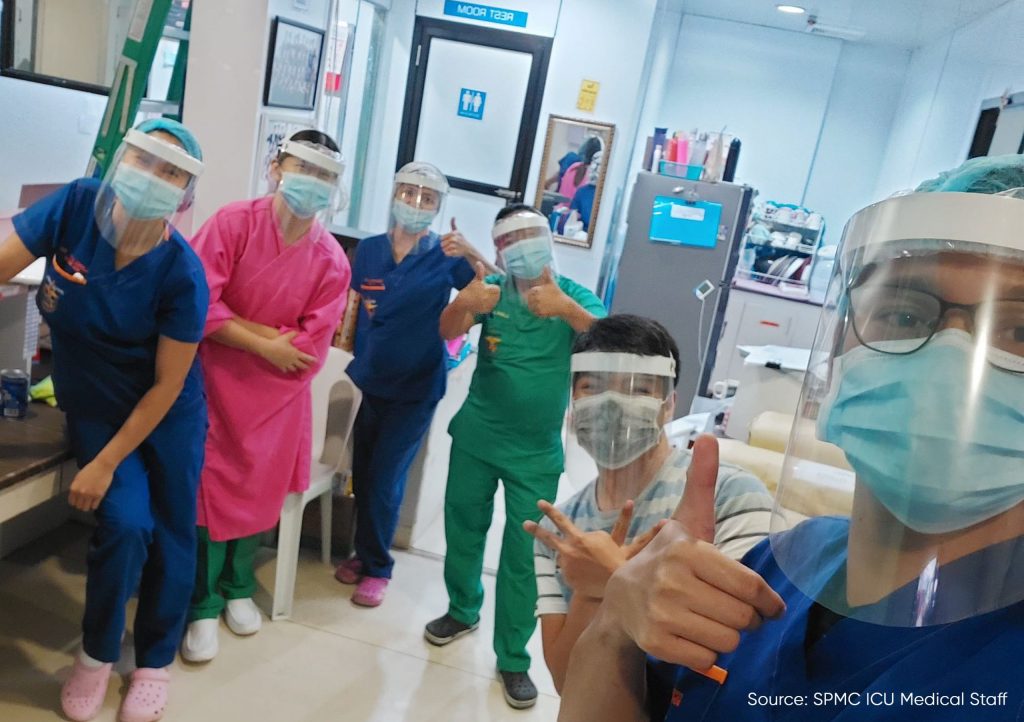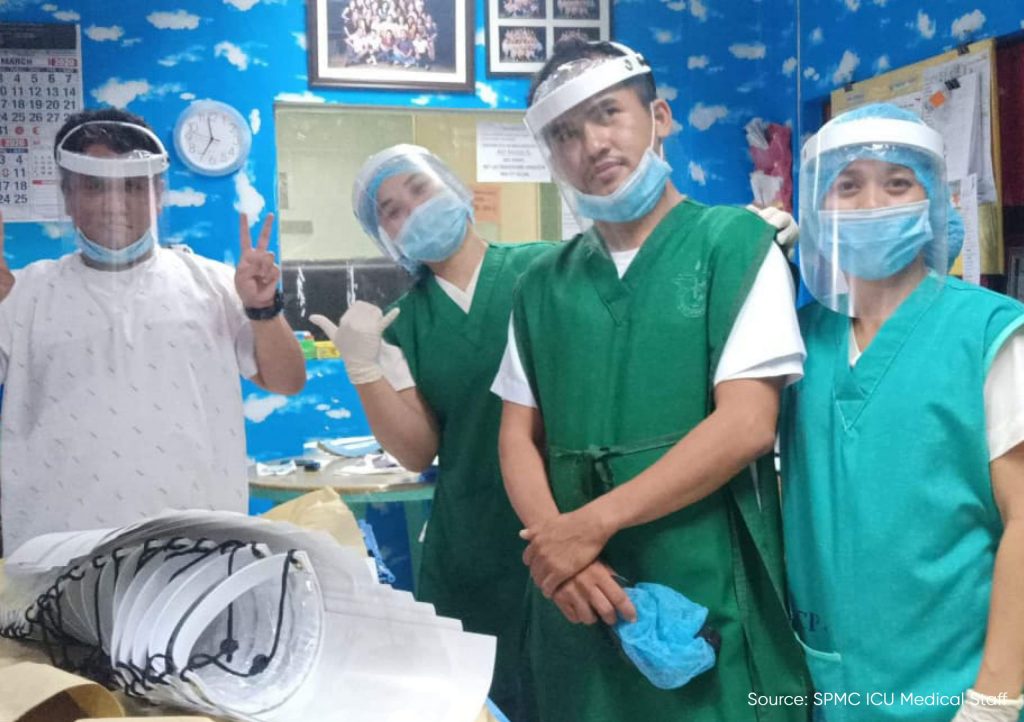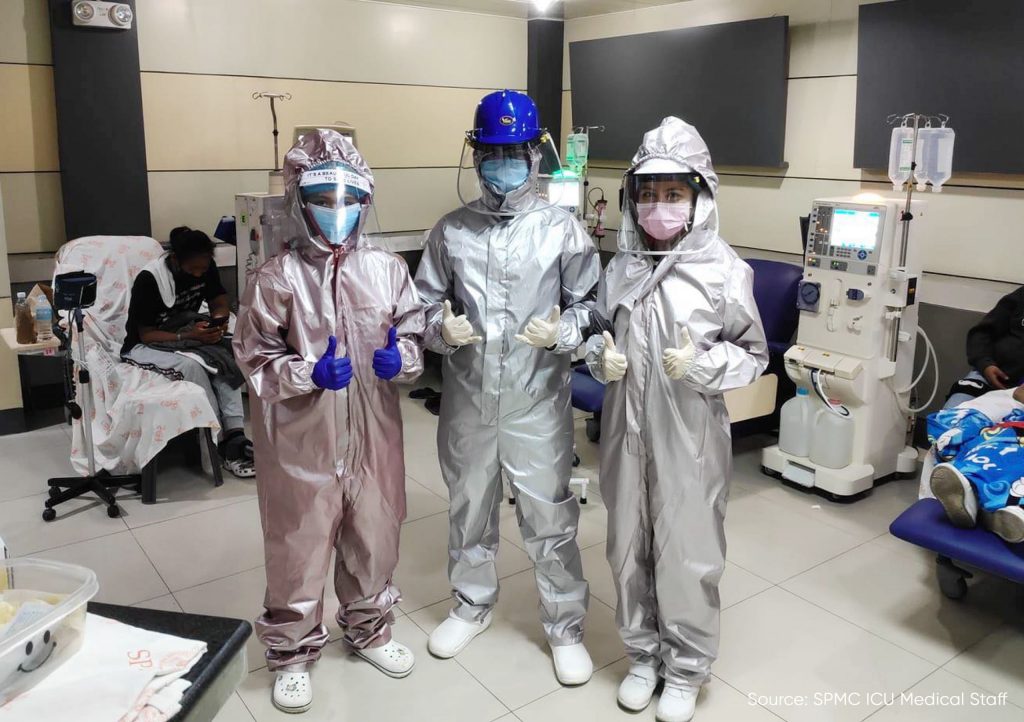CENTER FOR SERVICE-LEARNING AND COMMUNITY ENGAGEMENT
VISION
A community with a spirit of volunteerism and a strong commitment to excellence and relevance in community service
MISSION
To provide a holistic platform for integrated service opportunities for Mapúa MCM students, administrators, faculty members, staff and related stakeholders through initiatives that would foster excellence and relevance in community service
Nothing is more empowering than being able to harness one’s talents and skills for the betterment of the community.
At Mapúa Malayan Colleges Mindanao the spirit of volunteerism and civic consciousness among students, faculty, and staff are fostered through active participation in activities organized by the Center for Service-Learning and Community Engagement (CSCE). The CSCE provides an avenue for students, employees, and members of its immediate community to take part in the school’s mission of providing state-of-the-art solutions to problems of industries and communities locally and beyond. The goal of the department is to support activities that enhance and serve communities and address issues that impact the quality of life.
SUPPORTED ACTIVITIES:
- Volunteerism
- Community Outreach
- Service-Learning Initiatives
CONTACT DETAILS:
Services Offered
CSCE seeks to promote initiatives that would allow Mapúa MCM students to understand the role that they are supposed to play in addressing the needs of the society as well as in the nation-building processes. Within the institution, this could be achieved through various community service and development platforms such as service-learning.
Service-Learning (SL) is a learner-centered-outcomes-based strategy which focuses on the principles of community service integrated with instruction and reflection that would provide students with an opportunity for experiential learning ultimately leading toward socio-civic awareness and strengthening communities.
Download this form: Service Learning Proposal
CSCE seeks to encourage Mapúa MCM students including administrators, faculty members, and staff to actively participate in community service and development initiatives. This would promote collaboration and further enhance experiential learning in the context of social responsibility and the nation-building process. Community Engagement (CE) is an outcomes-based strategy which focuses on the practical application of the principles of community service and development.
Download this form: Community Engagement Proposal
As an institution that aims to actively participate in addressing the needs of the society through its academic and other related capacities, CSCE supports the delivery of extension services. These types of engagements allow Mapúa MCM employees (administrators, faculty members, and staff) to render a particular service for a specific organization/institution/association focusing on consultation, transfer of technical skills, knowledge, and the like for the benefit of a specific entity toward the attainment of collaboration, volunteerism, socio-capacity building, and sustainable development.
Principles of Service Learning
Students earn academic credit by demonstrating they have learned course content and skills. This is no different in community service learning courses. Academic credit is not awarded for doing service or for the quality of service, but rather for the student’s demonstration of academic and civic learning.
A community service assignment can be a new requirement, replace another requirement, or be recognized as additional credit, but it should not lower academic learning expectations. Adding a service component, in fact, may enhance the rigor of a course because in addition to having mastered the academic material, students must also learn from community experience.
All courses should have clearly defined learning objectives for which students are held accountable. However, it is especially necessary and advantageous to establish clear learning objectives in service learning courses. The addition of the community as a learning context multiplies the learning possibilities. Deliberate planning of course academic and civic learning objectives is necessary for students to prioritize their learning and to leverage the bounty of learning opportunities offered by community service experiences.
Four essential criteria exist in all service learning courses. First, the range of acceptable service placements must relate to the content of the course. Second, the duration of service must be sufficient to enable the fulfillment of learning goals. Third, specific service activities and service contexts must have the potential to stimulate course-relevant learning. Fourth, community projects must meet real need in the community as determined by the community.
Learning in any course is achieved by an appropriate mix of learning strategies and assignments that correspond to the learning objectives. In service learning courses, learning strategies must be employed that support learning from service experiences and enable its use toward meeting course learning objectives. Interventions that promote critical reflection, analysis, and application of service experiences enable learning.
Most students lack experience extracting and creating meaning from experience, let alone merging it with other academic and civic course learning strategies. Instructors can support students’ learning through service by providing opportunities to acquire skills for gleaning the learning from the service context (e.g., participant-observer skills), and/or examples of how to successfully complete assignments (e.g., making available exemplary papers and reflection journals from previous courses to current students).
Classrooms and communities require students to assume different learner roles. If students are passive learners in the classroom and active learners in the community, the contrast may challenge and even impede student learning. The solution is to reshape the traditional classroom to value students as active learners.
Commensurate with the preceding principle’s recommendation for active student learning; this principle advocates that service learning instructors also rethink their roles. An instructor role that would be most compatible with an active student role shifts away from a singular reliance on transmission of knowledge and toward mixed pedagogical methods that include learning facilitation and guidance.
In traditional courses, the learning strategies are constant for all enrolled students and are under the watchful eye of the faculty member. In service learning courses, given variability in service experiences and their influential role in student learning, one can anticipate greater heterogeneity in learning outcomes and compromises to faculty control. Even when students are exposed to the same presentations and the same readings, instructors can expect that classroom discussions will be less predictable and the content of student papers/projects less homogeneous than in courses without a service component.
Designing classroom norms and learning strategies that not only enhance academic learning but also encourage civic learning are essential to purposeful civic learning. While most traditional courses are organized for private learning that advances the individual student, service learning instructors should consider employing learning strategies that will complement and reinforce the civic lessons from the community experience.
Compiled from: Howard, J. (1993). Community service learning in the curriculum. In J. Howard (Ed.), Praxis 1: A faculty casebook on community service learning (pp. 3-12). Ann Arbor: OCSL Press.
Howard, J. (2001). Principles of good practice for service-learning pedagogy. Michigan Journal of Community Service Learning, Summer 2001, Page 16-19.
In the Spirit of Bayanihan, Mapúa Malayan Colleges Mindanao through its MMCM Center for Service-Learning and Community Engagement donated 500pcs of face shields, 100 protective suits and 100 boxes of gloves to the ICU Cluster of SPMC (Southern Philippines Medical Center) last April 2-3, 2020.
We are hoping that through this, our frontliners in the medical field will be kept safe and work unhindered in these difficult times.





Photo Credits to our supplier TATS Tees & Prints and Kirby Blair Parsaso Salisid, RN of SPMC.
Frequently Asked Questions
All students or employees of Mapúa MCM are encouraged to spearhead or participate in the conduct of service-learning or community engagement initiatives.
The Center for Service-Learning and Community Engagement has a pool of existing community partners where we can refer proponents depending on the intended activities as well as the need of the community.
Proponents have the option to fund their own service-learning or community engagement initiative or to conduct a fundraising activity for it. The CSCE can provide assistance in the form of provision of transportation or the use of our existing materials.

